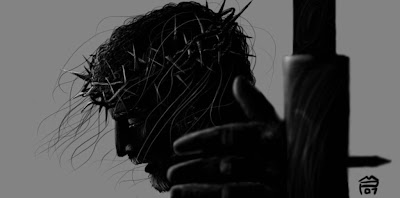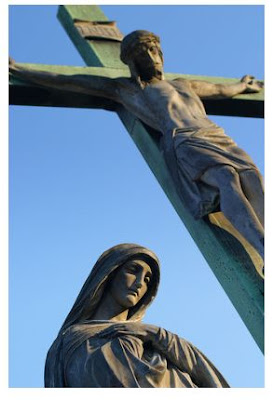
While reflecting on St. Joseph and this "worker" title, we might consider ourselves. Perhaps you can say aloud the following, inserting your name in the blank: "Today I am reflecting on ______________, the worker."
Here is a way of considering this notion of oneself as the worker. Many folks today experience very little of Dolly Parton's "9 to 5" song. Just eight hours a day is a dream for so many who are employed. Rare is the worker who has "R& R" time in the evenings or on weekends. This raises the question: How much work do we allow to serve as an excuse for not taking time to be with the Lord.
Even we who are priests can easily forgo time for prayer or spiritual reading or simply sitting in church or chapel before the Blessed Sacrament because we feel overwhelmed with parish work or obligations. We allow them to expand beyond all available time. Like parents, priests can always find that there is something to do around a rectory or parish. It is so easy to thing, "I'll get to that prayer time, to that rosary or that breviary soon ... which later in the day or evening becomes a race to finish or sloppy because of tiredness.
Today in our hi-tech, non-stop world, the challenge is to block work from becoming a curse. Work has always been looked up in the Scriptures as a blessing. But, if it keeps us from God, it is a curse.
Here is a way of considering this notion of oneself as the worker. Many folks today experience very little of Dolly Parton's "9 to 5" song. Just eight hours a day is a dream for so many who are employed. Rare is the worker who has "R& R" time in the evenings or on weekends. This raises the question: How much work do we allow to serve as an excuse for not taking time to be with the Lord.
Even we who are priests can easily forgo time for prayer or spiritual reading or simply sitting in church or chapel before the Blessed Sacrament because we feel overwhelmed with parish work or obligations. We allow them to expand beyond all available time. Like parents, priests can always find that there is something to do around a rectory or parish. It is so easy to thing, "I'll get to that prayer time, to that rosary or that breviary soon ... which later in the day or evening becomes a race to finish or sloppy because of tiredness.
Today in our hi-tech, non-stop world, the challenge is to block work from becoming a curse. Work has always been looked up in the Scriptures as a blessing. But, if it keeps us from God, it is a curse.
Lord teach us to number our days* aright
that we might gain wisdom of heart. (Psalm 90, v. 14)
*[we might add "our time"]
that we might gain wisdom of heart. (Psalm 90, v. 14)
*[we might add "our time"]




















